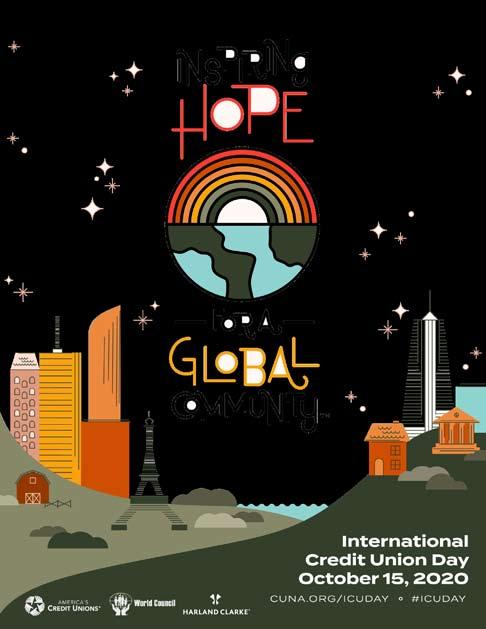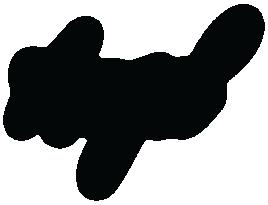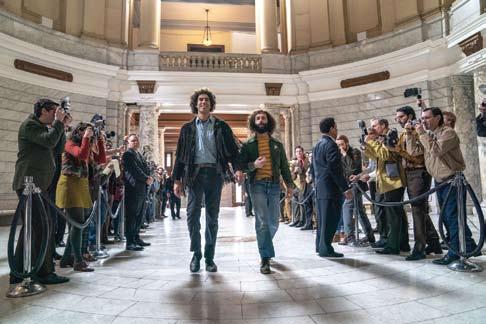
4 minute read
Film: Zilberman on The Trial
Chained dogs suffer day in and day out. They endure sweltering temperatures, hunger, and thirst and are vulnerable and lonely. Keep them inside, where it’s safe and comfortable.

Advertisement




Photo: Don Flood (donfloodphoto.com) • Makeup: Mylah Morales, for Celestine Agency Hair: Marcia Hamilton, for Margaret Maldonado Agency • Styling: Natalie and Giolliosa Fuller (sisterstyling.com)

Trial by Fire

The Trial of the Chicago 7
Directed by Aaron Sorkin
Aaron Sorkin scripts often include a riff on the same scene. You can see it in Malice, The Social Network, and even Sports Night. In a boardroom, often but not always during a legal deposition, two articulate people argue over an esoteric moral point. Sorkin uses this disagreement as a metaphor for differing worldviews, or an interpretation about their shared past. The Social Network, for example, is all about whether Mark Zuckerberg screwed over Facebook co-founder Eduardo Saverin in the company’s early stages (he did). If the dialogue and performances are powerful— and the argument is sufficiently juicy—that may be enough to make it cinematic.
The Trial of the Chicago 7, the new docudrama written and directed by Sorkin, is full of these arguments. In fact, it is an ideal Sorkin project because the bitterest disputes are among impassioned activists who disagree about the methodology, not the goal. Both Abbie Hoffman (Sacha Baron Cohen) and Tom Hayden (Eddie Redmayne) want to use the 1968 Democratic National Convention to force the end of the Vietnam War. Hoffman is a Yippie, a prankster who undermines the government’s authority, while Hayden is a more traditional activist. After violence erupts outside the convention, with cops beating protestors, Hoffman and Hayden—along with five others and Black Panther leader Bobby Seale (Yahya Abdul-Mateen II)—are charged with inciting a riot. This film follows the farce of a trial, presided over by a cranky judge (Frank Langella) who has a few screws loose.
The best scenes are in the courtroom itself. Mark Rylance plays William Kunstler, a civil rights activist who dismantles the government’s argument with one witness after another. The judge exasperates everyone—he clearly has no sense of objectivity—so ultimately the trial becomes an attempt to expose Nixonian political bias. Hoffman and Jerry Rubin (Jeremy Strong) openly mock the trial, while Hayden and David Dellinger (John Carroll Lynch) believe their arguments can be forceful enough. As always, Sorkin crams dialogue into the film, with a focus on the uneasy alliance of everyone involved.
There is a stagey quality to the film that is wrong for the material. The courtroom depositions are an opportunity for flashbacks (the film does not depict the actual demonstration until the halfway point). The cumulative effect is that the courtroom, while full of legal procedure and moral outrage, is distant from the milieu of late 1960s America. Maybe a straightforward narrative would provide better context. Sorkin is somewhat effective in how he shoots the protests: It looks like the infamous news footage, except in vivid color. But as a writer first and director second, his instinct is to tell rather than show. This sensibility fails him when it matters most.
No one expects The Trial of the Chicago 7 to follow history exactly. There are disputes about how it went down, for one thing, and any docudrama will take some creative liberties. But Richard Schultz, the prosecuting attorney played by Joseph Gordon-Levitt, is more than a creative liberty. He is a fabrication, invented by Sorkin to show that not all prosecutors are that bad. A mildmannered family man who ultimately stands in solidarity with the men he prosecutes, this kind of fabricated moral courage is an insult to what Hoffman, Hayden, and the others actually fought for. There is a memorable scene where the judge orders Bobby Seale to be bound and gagged in the courtroom. This actually happened, but did the prosecutors object to the judge’s decision? The history is unclear, and Sorkin’s “both sides” equivocation is a smarmy disservice.
Distortions notwithstanding, The Trial of the Chicago 7 is a rousing reminder of what was at stake in the late 1960s. Tens of thousands of young men were being sent to Vietnam to die, and the establishment was dispassionate, even cavalier, about it all. Cohen is convincing as a prankster with a moral compass, and once you get past Redmayne’s strange American accent, there is a stirring portrayal of a radical who has no choice but to work within the system he loathes. They sacrificed and bled just so the U.S. government, in that moment, could be exposed as amoral and obscene. There are obvious connections between this trial and what happens on the streets today. Given Sorkin’s interest in dialogue over action and moral fault lines, this film shows he is the wrong person to make sense of these times. —Alan Zilberman








